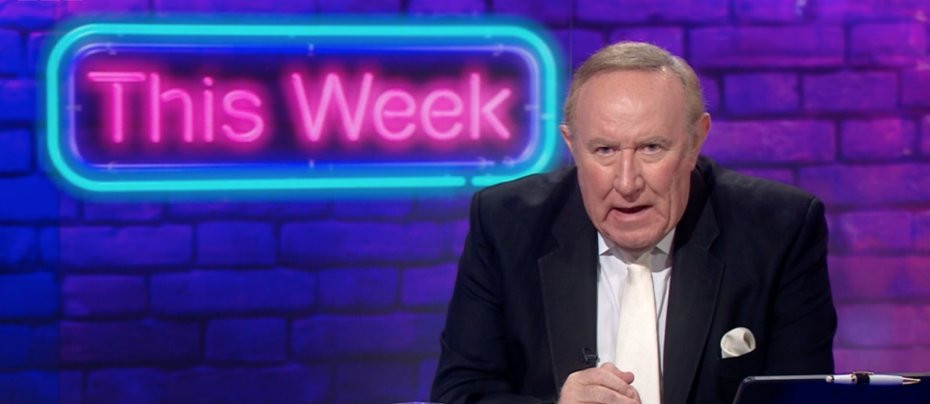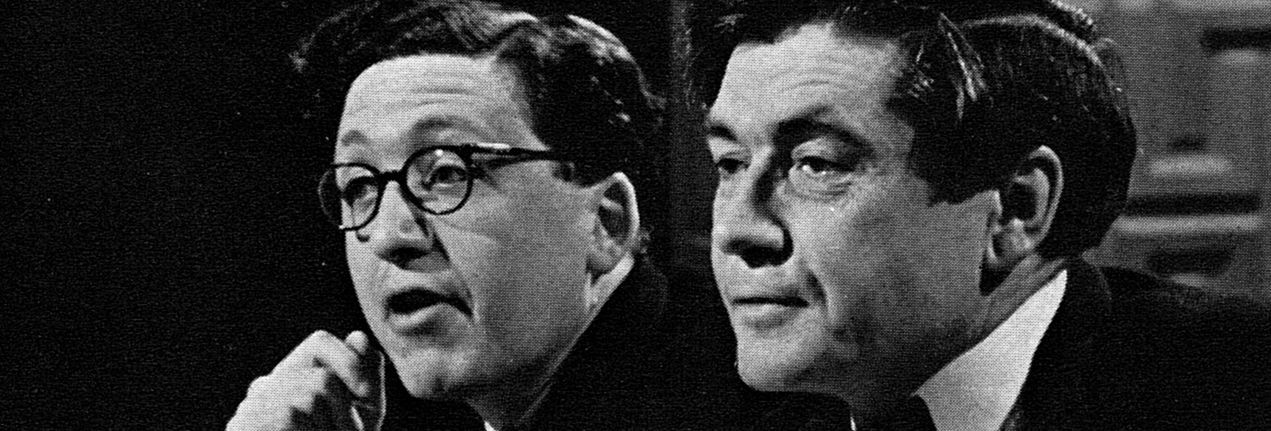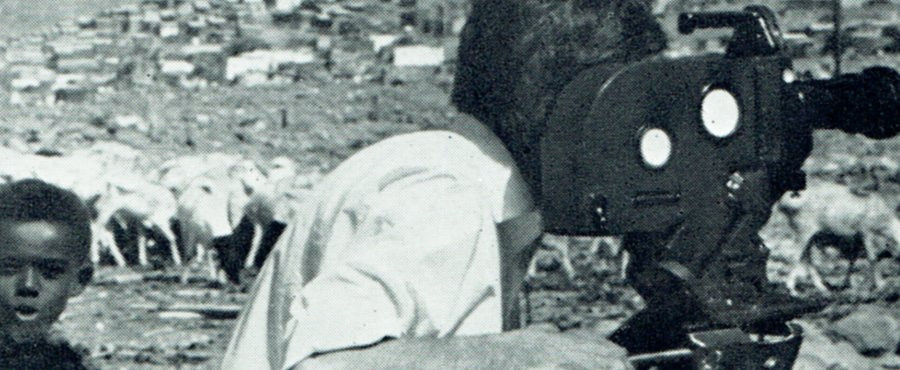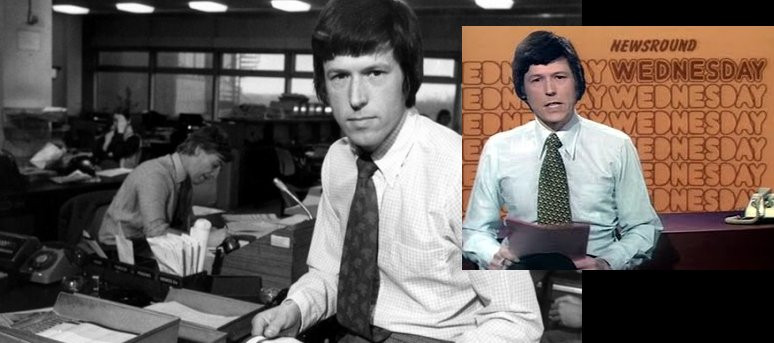
That TV Year - 1963
"In spite of all the major domestic news stories of 1963; The Great Train Robbery, The Profumo Affair, the Beeching Report, everything else was eclipsed by the world shattering events in Dallas Texas on 22nd November 1963."
Citizen 63 was one of the most significant TV shows of 1963. The five part John Boorman documentary, made by BBC West filmed five individuals as they confronted and conformed to the problems and pressures of everyday life in Britain in 1963. The subjects, chosen to represent a cross section of the British public, were a young businessman, a police inspector, a shop steward, a scientist and a somewhat rebellious young schoolgirl. It couldn't have been better timed.
Young Britons, influenced by Alan Stilletoe's Saturday Night and Sunday Morning, in which a factory worker sticks his fingers up at authority, were questioning the country's social and political attitudes and the era that is now fondly remembered as the 'Swinging Sixties' was about to begin in earnest. When The Beatles made their debut network-wide performance on Thank Your Lucky Stars it was a signal that the times, as Bob Dylan would note, were definitely a' changing. The restraints of the fifties were finally thrown off once and for all as the post war 'baby boomers' entered their teenage years.
Television was a little slower to recognise the change although it was finally moving in the right direction. Filmed in Rediffusion's Studio 9 in Kingsway, London, Ready Steady Go went out live on Friday nights at 6pm and opened with the slogan "The Weekend Starts Here". Although introduced by former Cambridge law graduate and Radio Luxembourg DJ Keith Fordyce, it was his co-host, Cathy McGowan, who became the real star of the programme. McGowan had been working in an office at the television company when she answered an advertisement for a 'typical teenager' to act as advisor to the show, and was rewarded by being pushed in front of the cameras without the benefit of any training or broadcasting experience. But her natural charm, enthusiasm, style and beauty made up for the occasional fluffed lines or missed cues, and she quickly became a role model for the female population as well as being nominated, unofficially, as Queen of the Mods.
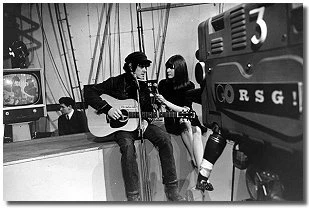
Whereas Top of the Pops (which started the following year on the BBC), concerned itself with the top ten or twenty chart hits, RSG was not afraid of being the showcase for new talent, and consequently artists such as Eric Burdon and The Animals, The Kinks, Donovan, and The Pretty Things were given their television debuts, and US artistes such as Sonny and Cher, The Four Tops, Martha Reeves and the Vandellas, Rufus Thomas and Marvin Gaye, were introduced to a British audience for the first time. Another important aspect of the show was that it also gave a weekly report on the latest fashions and trends, vital to any wannabe 'dedicated follower of fashion.'
The traditionalists still had their way, though, and the top rated show of 1963 was the Royal Variety Performance, although it should be noted that the 'top of the bill' act for that year were none other than The Beatles. The BBC managed six top twenty hits in 1963, their number one show being Steptoe and Son (third behind Coronation Street) and Dr. Finlay's Casebook came in at number four. There was no such thing as political correctness in this era and Miss World, always a huge hit with viewers, was the sixth most watched show of the year. Bruce Forsyth continued to be 'in charge' on Sunday nights at the London Palladium.
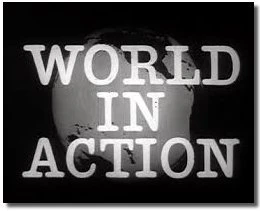
Dick Emery, for so long second fiddle to a number of other TV stars was rewarded with his own series. It proved a wise move by the BBC as the show returned year after year until 1981. Another long running series, which debuted this year was made by Granada Television. The series presented hard news stories focusing on changes in society in both the social and political sense. It was the award winning World In Action. The series finally ended in 1998.
Drama fans were treated to the ongoing Armchair Theatre and a new series, The Sunday Play, became a showcase for new dramatists although the themes varied from drama to love stories, to comedy and to tragedy. Another showcase for new writing talent was First Night, a series of plays with an emphasis on action and conflict. The series premiered with Alun Owen's 'The Strain'. The following year Owen, a Liverpool playwright would script The Beatles debut movie A Hard Day's Night. The Victorians was a series of self-contained plays representing nineteenth century life and there was also a series about a policeman, Sergeant Cork who solved his crimes in that same Victorian era. The Plane Makers, set in modern day Britain, centred round the aviation industry from the workshop floor to the boardroom.
Those that liked to mix their drama with a little bit of escapism could continue to enjoy the adventures of globetrotting super smoothy Simon Templar in The Saint, or thrill at the exploits of pin-striped agent John Steed and his leather clad sidekick Cathy Gale in The Avengers.
Quiz shows were popular in 1963 and Friday nights would not have been complete without Michael Miles trying to trick his guests into saying the word 'yes' or 'no' in the opening 60 second round of Take Your Pick, before inviting them to either 'take the money' or 'open the box' that might contain 'tonight's star prize'. Hughie Green, on the other hand, could offer contestants big money if they could withstand the tension of the soundproof booth in Double Your Money.
Fans of the cult radio series The Goon Show were given a TV puppet version called The Telegoons, which found a new generation of fans. There was another puppet series for younger viewers created by Roberta Leigh, called Space Patrol. However, the following year, Leigh, who had begun the whole TV puppet adventure series genre, would be overshadowed by Gerry Anderson's highly polished series Stingray.
Other popular children's shows in 1963 were Small Time which aired daily at 4.45 pm. On Tuesday's and Friday's this was followed by Five O'Clock Club, which was introduced in this year. A children's adventure series such as The Terrible Ten, a US cartoon series or a magazine show like Zoo Time then lead up to the early evening news. And if you wanted to check the schedules in your television magazine to see what was on and when, then you needed the Radio Times for BBC programmes or TV Times for ATV as each magazine only carried show information for their own channels.
Sid James, for so long the partner of Tony Hancock, went solo with Taxi!, which was scripted by Dixon of Dock Green creator Ted Willis. Hancock had grown jealous of James' popularity and was worried that he would soon be eclipsed by the gravel faced South African. He was right. James went on to have a hugely successful TV and film career. Hancock committed suicide in 1968.
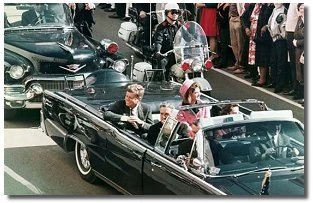
In spite of all the major domestic news stories of 1963; The Great Train Robbery, The Profumo Affair, the Beeching Report (which recommended the closure of 2,128 railway stations with a loss of 67,700 jobs), everything else was eclipsed by the world shattering events in Dallas Texas on 22nd November 1963. The 35th President of the United States was struck by assassin's bullets as the world looked on. As an eight year-old then it is quite clear how this event left such an impression on me that I can still clearly remember it more than 50 years later.
But as an eight year-old there was one more lasting impression on me in 1963. It was the debut of a children's series that began in a junkyard in Totters Lane. Television's most enduring science fiction series began on 23rd November. And it was called Doctor Who...
Published on February 17th, 2019. Written by Laurence Marcus (2017) for Television Heaven.


